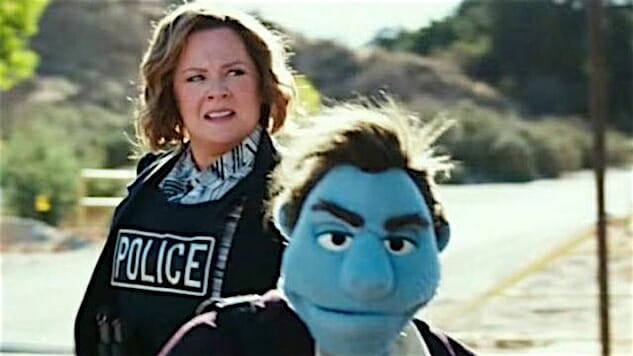The Happytime Murders

1. There is a certain kind of kid you meet growing up to whom it is incredibly important that you know that he finds himself dangerous and rebellious. He—and it’s always a he—is probably from a nice family that raised him to be a good boy, but once he hits a certain adolescent age, he feels an undeniable pressure to show that he is Tough. This manifests itself, as all pre-teen rebellion, in potty talk: Bad language, “dirty” jokes, constant talk about sex that reveals a fundamental lack of understanding of the act itself. You know it’s a phase. You know he’s just trying to look cool to his friends. You know everybody can see right through it. But you’re still embarrassed for him. He’s trying so hard. He’s trying so, so hard.
2. The Happytime Murders is a movie made by one of those kids, though I wouldn’t say for one of those kids: Any self-respecting snot-nosed nihilist punk kid would flip this thing the bird and go sneak into Slender Man to giggle at all the scared girls. The movie is so desperate to be gross and over-the-top that it overstays its welcome within the first 15 minutes, and we’re counting trailers. The movie is directed by Brian Henson, Jim’s son, as part of the something called Henson Alternative, and, well, he has some explaining to do. It is not fair to say that Jim Henson would be appalled by what his son has done with this film, because hey, why single him out? You don’t have to be the most famous puppeteer in world history to think The Happytime Murders is repugnant junk. All you have to do is see it.
3. The premise of The Happytime Murders is … well, actually, I’m not sure there is a premise here. This is not like Who Framed Roger Rabbit?, which imagined a world where Toons and Humans co-existed but had a framework for it, a foundational concept around which it structured its plot. The Happytime Murders doesn’t really bother with that. It very shakily, and very briefly, sketches a light puppets-as-racial-outcasts metaphor, but then it drops it for a buddy cop would-be comedy that occasionally features puppets orgasming silly string all over an office for about three minutes. The puppets aren’t interesting as anything other than puppets saying gross things when we are not used to puppets saying gross things; that is the joke, over and over and over. We meet L.A. private investigator Phil Phillips, a puppet who gets paired with his old cop partner Connie Edwards (Melissa McCarthy) to investigate a series of murders of cast members of an old ’80s television show. And then they go have a mismatched partnership that has less emotional stakes and fewer laughs than Tango and Cash.